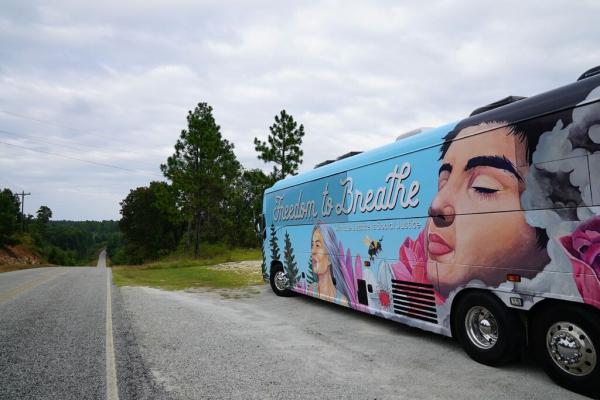Sep 7, 2018
Organized by a number of local and national partners, the Freedom to Breathe tour bus is a “vehicle for social change” and moving art installation. The bus has been on the road since Aug. 25, capturing the stories of climate leaders and organizers in impacted communities across the United States and sharing them out under the hashtag #FreedomToBreathe.
Read the Full Article

Already a subscriber? Login
